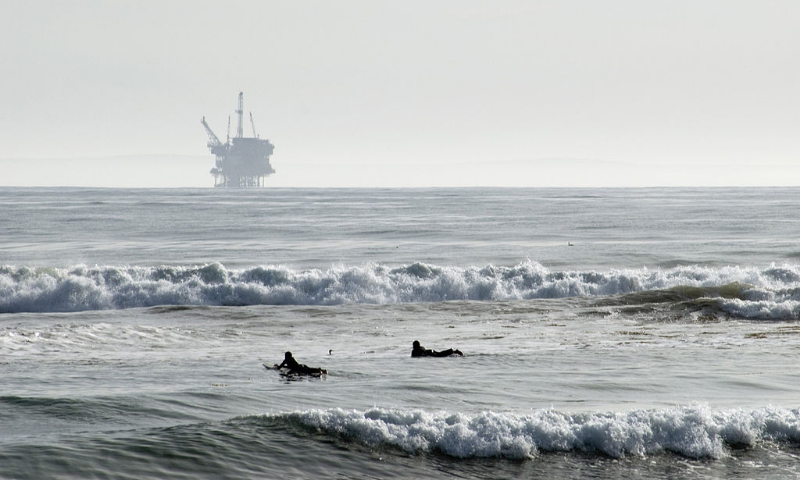
For a decade or so, the giant international oil companies have had it easy.
Of course, they have had to contend with volatile oil and gas prices, soaring costs on mega projects, unimpressed equity investors, rapacious governments, capricious geology, hostile environmentalists and all the usual paraphernalia of the business. But they faced at least relatively little competition from outside their magic circle. Now, with a new breed of start-up companies, that may change.
For a couple of decades after the nationalizations of the 1970s, there was a distinction between three groups of oil companies: the large international majors such as Shell and Exxon, which spanned the full value chain; the independents, who only explored for and produced petroleum and concentrated on a handful of countries; and the national oil firms, such as Saudi Aramco.
Low oil prices in the late 1990s and early 2000s forced a wave of consolidation, with the majors gobbling each other up to form super majors, including ExxonMobil and ConocoPhillips. And long-running European independents were swallowed: Enterprise Oil by Shell, Lasmo by Italian major Eni. Shell’s 2015 buy of BG (the former British Gas) was the last big act in this drama.
National oil companies – mostly from net importing countries – emerged as serious competitors internationally, particularly the three big Chinese state firms.
The rise of Canadian oil sands, Australian liquefied natural gas and, later, US unconventional oil and gas led the North American and antipodean companies to retreat to home territory, with firms such as Encana and Devon selling what had been substantial overseas portfolios. Even companies that retain international assets such as Occidental, which has a large Arabian Gulf presence, and Apache, which has been very successful in Egypt, were compelled by shareholder pressure to sell stakes and divert more capital to the US.
The fading of the independents left a hole in the market. They had been aggressive explorers, if not always financially successful, and had helped to open up new provinces or fully exploit mature ones. Some still survive, but a company such as Tullow Oil, notable for making new finds in Africa, has a market capitalization of just $4 billion, compared to BP’s $138bn.
Now a new wave of independents is emerging: well-funded groups led by experienced executives backed by big private equity groups and often with imaginative names. They are following the trail blazed in the US, where there has been great willingness to pour capital into new companies developing shale formations. But outside North America, they are not active in unconventional reservoirs.
Some specialize in the risky frontier exploration of yesteryear, like Kosmos Energy, which struck Ghana’s first major field in 2007 and has since followed up with big gas finds in north-west Africa, off Mauritania and Senegal. But most are pursuing mature basins and picking up assets discarded by the supermajors as too small and costly.
Chrysaor, named after the winged horse Pegasus’ brother, is chaired by Linda Cook, formerly chief of Shell’s gas and power division. After acquiring about half of Shell’s UK North Sea assets last year for $3bn, it has become the largest independent producer there.
Norway has been particularly fruitful. As companies such as Chevron and Shell have exited or down scaled, Det Norske Oljeselskap, an independent that had grown through a series of acquisitions, merged in 2016 with BP’s Norwegian unit to form Aker BP.
And deals have not been limited to the North Sea. Last year, Neptune Oil and Gas, backed by private equity groups Carlyle and CVC, paid $3.9bn for the exploration and production division of French utility Engie, including assets in the North Sea, Algeria and Egypt. And in the same year, Assala Energy, backed by Carlyle, bought Shell’s long-term onshore position in Opec member Gabon.
Most recently, in September, LetterOne, backed by Russian oligarch Mikhail Fridman and chaired by former BP boss Lord Browne, merged with Wintershall, the upstream arm of chemical giant BASF, to form Europe’s largest independent oil and gas company, producing 575,000 barrels of oil equivalent per day from Norway, Egypt, Algeria, Mexico and elsewhere. Wintershall is also appraising a gas field in Abu Dhabi.
The new players hope to bring down costs, be quick and flexible, and operate assets with more attention than when they were at the tail-end of a supermajor’s portfolio. They will invest to keep fields producing longer, important as the bigger companies seek to shed older fields.
For now, there is a strategic complementary between the new and incumbent firms. Private equity, with its itchy trigger-finger, will within a few years look to float the firms on stock exchanges or sell them to a trade buyer. It will be interesting to see is whether a firm such as Neptune will grow into a large and internationally diversified company able to develop new frontiers and take on a range of project types, instead of just managing mature fields.
Outside North America and Russia, oil production growth in non-Opec countries has been weak. This sector needs some more aggressive, large, technologically capable and well-capitalized private companies, able to discover and develop significant new basins in areas such as Brazil, Mexico and West Africa, and to compete with the super-majors and big national oil companies on something like equal terms. If winged horses, the Kosmos and the ruler of the seas Neptune are fanciful, their strategic aim is not.
Robin M Mills is CEO of Qamar Energy, and author of The Myth of the Oil Crisis
Photo licensed under the Creative Commons Attribution-Share Alike 2.0 Generic license. Author: Flickr upload bot
Check out our other current stories!


